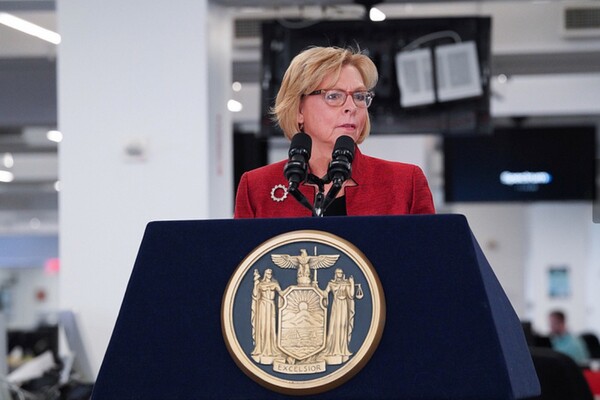5/18
Health Care Policy
Exacerbating the health care divide
With rates of diagnoses and death disproportionately affecting racial minorities and low-income workers, experts from the School of Arts & Sciences address how COVID-19 has further exposed already dire health outcome inequalities.
A new vision for the Population Aging Research Center
For more than 25 years, PARC has been a hub for work on disparities in aging and mortality. Co-directors Hans-Peter Kohler and Norma Coe, who took over in July, want to expand its reach.
An analysis of President-elect Biden’s tax proposals
The Penn Wharton Budget Model takes a post-election look at the platform of President-elect Joe Biden and forecasts its potential effects on the economy.
Elizabeth Warren’s take on the election and the path forward
The Massachusetts senator’s discussion with Fels Distinguished Fellow Elizabeth Vale was part of the Fels Public Policy in Practice series.
A post-pandemic path to solving the nursing home crisis
A collaboration of experts across Penn schools has created a detailed, long-term policy plan for nursing homes, published in the New England Journal of Medicine.
Across U.S. Catholic archdioceses, child protection policies vary widely
A report from CHILD USA, led by Professor of Practice Marci Hamilton, found that such policies lack uniformity, aren’t comprehensive, and often don’t take a victim-centered approach.
Aging and the costs that come with it
As a high school student, junior Darcey Hookway spent time volunteering on a dementia ward at a local hospital. “The social aspect of their condition really struck me,” says Hookway, who is from London. “They struggled immensely with social isolation. And now with COVID exacerbating that more than ever, I think that’s a huge detriment to their health.”
Enhanced Recovery program significantly reduces post-op opioid use
An Enhanced Recovery After Surgery protocol for elective spine and peripheral nerve surgery decreases opioid use and the length of hospital stays.
Community health worker interventions can reduce hospitalizations
A new study adds to the growing evidence base that community health workers can help meet the challenges of traditional health care delivery and strained health systems.
New machine learning method allows hospitals to share patient data privately
An emerging technique called federated learning is a solution for health systems and hospitals that are often resistant to sharing patient data, due to legal, privacy, and cultural challenges.
In the News
It’s time to end the Medicare-Medicaid merry-go-round
In an opinion essay, Rachel M. Werner of the Leonard Davis Institute, Wharton School, and Perelman School of Medicine says that Medicare and Medicaid fail to integrate coverage and coordinate care across their two plans.
FULL STORY →
https://tinyurl.com/mwbnr9xk
Diane Alexander of the Wharton School says that medical reimbursements for an identical office visit in 2009 ranged from $37 in Minnesota to $160 in Alaska.
FULL STORY →
Why maternity care is underpaid
Diane Alexander of the Wharton School says that medical reimbursements for an identical office visit in 2009 ranged from $37 in Minnesota to $160 in Alaska.
FULL STORY →
How to die in good health
PIK Professor Ezekiel Emanuel says that incessantly preparing for old age mistakes a long life for a worthwhile one.
FULL STORY →
Many cancer drugs remain unproven five years after accelerated approval, a study finds
PIK Professor Ezekiel Emanuel says that there should be definitive benefits to cancer drugs five years after their initial accelerated approval.
FULL STORY →
The influence of private equity on Philly-area doctors’ practices is growing. A new study offers insight
Experts on a panel at the Leonard Davis Institute last year said that private equity-backed health care businesses should not have special rules for issues like reimbursement and transparency.
FULL STORY →












